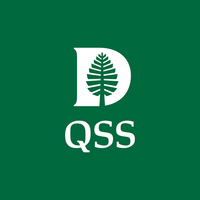The Political Consequences of Voter Information Deficits
Seminar by QSS post-doctoral fellow Erik Peterson
Voters are often uninformed about the political candidates they choose between. I use three studies to show that these information deficits have political consequences and that new developments limit the ability of media outlets to reduce them. Study 1 uses a conjoint survey experiment to demonstrate that voters become more reliant on partisanship to evaluate politicians when they lack other pieces of information. The second and third studies illustrate obstacles to providing this information to voters. In Study 2, appeals priming several motivations for political news consumption failed to increase the use of an online voter guide in a large field experiment conducted with a media partner. Study 3 uses an original panel dataset to show that widespread layoffs of newspaper reporters over the past decade have reduced the availability of political news coverage. Combined, these studies demonstrate the growing relevance of information deficits for understanding contemporary politics.
